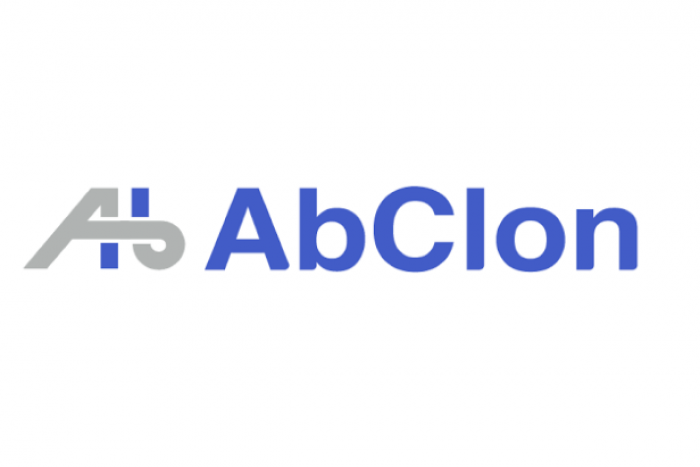Bio & Pharma
AbClon shows promising results in clinical tests of leukemia treatment
Six of nine patients who got the company's AT101 immunotherapy saw complete remission and low side effects
By Apr 19, 2023 (Gmt+09:00)
2
Min read
Most Read
LG Chem to sell water filter business to Glenwood PE for $692 million


Kyobo Life poised to buy Japan’s SBI Group-owned savings bank


KT&G eyes overseas M&A after rejecting activist fund's offer


StockX in merger talks with Naver’s online reseller Kream


Mirae Asset to be named Korea Post’s core real estate fund operator



Based on preliminary clinical testing, AbClon Inc. has developed an immunotherapy leading to complete remission and total elimination of carcinogens.
The antibody drug maker on Tuesday said it released partial results of Phase 1 clinical trials of AT101, its CAR-T treatment targeting the CD19 protein, at this year's annual meeting of the American Association for Cancer Research in Orlando, Florida. The results showed complete remission in six of the nine patients tested.
CAR-T is a patient-specific and single-dose cell therapy whose safety was confirmed in Phase 1 trials and its optimal dose decided for Phase 2, with its therapeutic effect immediately verifiable.
AbClon is conducting Phase 1 trials of AT101 on patients with blood cancers like relapsed and refractory diffused large-cell type B lymphoma, which conventional anti-cancer drugs cannot treat, and follicular, mantle cell and marginal zone B cell lymphoma.
At the conference, AbClon released the AT101's effects on the low- and medium-dose groups among the three tested. Six of nine patients were confirmed to be in complete remission three months after administration of the treatment.
By dosage, three of the six patients in the low-dose group and all three in the medium one were verified as being in complete remission.
In the low-dose group, dosage was lowered to about a fifth of Novartis' commercial CAR-T treatment Kymria and that given to the medium group was little different.
The industry seems most interested in the low side effects of AT101. The immunotherapy's level of cytokine release syndrome (CRS), a side effect of CAR-T treatment, was a low 11.1% for Grades 1-5 and 0% for the serious side effect Grade of 3 or higher. In Phase 2 clinical trials on 115 patients with relapsed or refractory diffused large B cell lymphoma, Kymriah's was 58% for Grade 1-5 CRS and 17% for Grade 3 or higher.
"The AbClone data came from tests on nine people, so more monitoring is needed,” an industry source said. “The reduction of side effects is significant."
AbClon in December 2021 received approval from the Ministry of Food and Drug Safety to conduct Phase 1 and 2 clinical trials of AT101 and administered the treatment to its first patient in May last year.
Write to Yoo-Rim Kim at youforest@hankyung.com
More to Read
-
 Bio & PharmaVaxcell-bio's NK cell therapy wins therapeutic approval for liver cancer
Bio & PharmaVaxcell-bio's NK cell therapy wins therapeutic approval for liver cancerApr 14, 2023 (Gmt+09:00)
1 Min read -
 Bio & PharmaPrestige Bio's pancreatic cancer treatment gets US FDA fast-track designation
Bio & PharmaPrestige Bio's pancreatic cancer treatment gets US FDA fast-track designationMar 16, 2023 (Gmt+09:00)
1 Min read -
 Bio & PharmaSillaJen starts US trial of anti-cancer drug from Basilea
Bio & PharmaSillaJen starts US trial of anti-cancer drug from BasileaFeb 27, 2023 (Gmt+09:00)
1 Min read -
 Bio & PharmaCelltrion Healthcare launches anti-cancer biosimilar Vegzelma in Japan
Bio & PharmaCelltrion Healthcare launches anti-cancer biosimilar Vegzelma in JapanJan 26, 2023 (Gmt+09:00)
1 Min read
Comment 0
LOG IN


